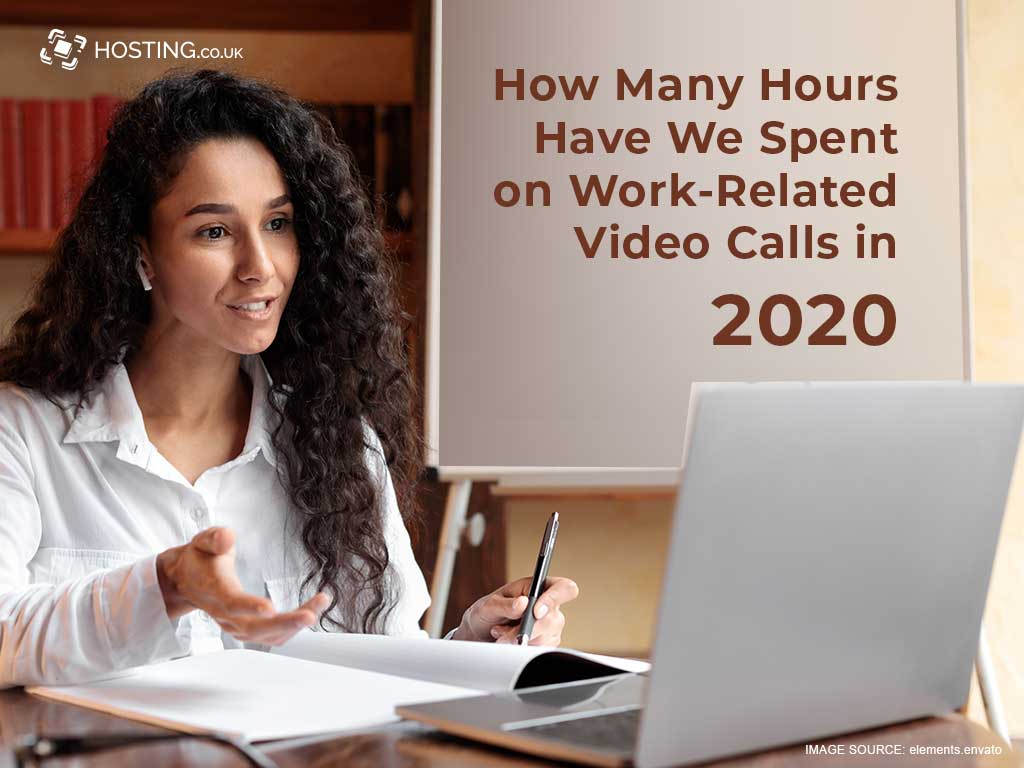There’s no doubt that 2020 has been the year of the video call. This year, vast numbers of professionals switched their office desks for remote working setups. It’s a huge shift to working arrangements that has been echoed all over the globe. Platforms like Zoom saw usage skyrocket as businesses sought to connect employees from home. In fact, user figures have continued to rise throughout the year. So, it shouldn’t surprise you that the amount of time spent on video calls this year has been substantial!
In March 2020 Zoom was seeing 200 million daily meeting participants. By April that number had gone up to 300 million. Compare this to the platform’s typical monthly user figures of around 10 million in 2019 and you can see exactly how far communication has changed this year.
Video conferencing services have been used by companies in almost every industry. They’ve been an incredibly important tool for private businesses, but they’ve also been used by the education sector, as well as governments and healthcare trusts working at the forefront of the pandemic response.
We surveyed 2,000 adults in the UK to learn more about how they’ve been using video calls in 2020, and what impact these online communication tools have had over the course of a very different and difficult year. Here’s what we found.
How much time have workers spent on video calls in 2020?
Video calls and online meetings became a prominent part of the working day this year, with a huge proportion of professionals working from home to protect themselves from the coronavirus.
Research has revealed that those working from home since the beginning of lockdown in the UK have now spent an average of nine days talking to colleagues and clients via video conferencing. That’s 2,189 working hours, or 13,139 minutes in total.
While video calls aren’t the main form of communication for every remote worker, they remain an important tool for a large group. Almost half (47%) of professionals working from home have joined a video call once or twice every day since the switch to remote working, and the prevalence of these video calls has continued throughout the year.
The survey found that 22.95% of respondents, or 459 people, had used video conferencing software at least once per day. A similar number (471) responded by saying that they used it twice per day ordinarily. Just 15% of those working from home had not used video calls at all, while 5.85% of respondents had joined five or more video conferences per day.
The average length of a video call in the UK is 39.5 minutes, an interesting finding which suggests that a considerable number of organisations are taking up Zoom’s basic, free plan, which facilitates calls of up to 40 minutes without charge.
Which phrases did we hear most often in video calls?
Video calls have been used to connect employees from a diverse range of industries, but there are a few phrases that we’ve seen crop up time and time again – no matter what’s being discussed! Our survey asked respondents what they thought the most overused phrases were in video calls, and the results were quite interesting.
The phrase that was heard most often in video calls this year was, of course, “you’re on mute.” This nod to the little video call hiccough we see almost every day was found to be the most prevalent, and most overused phrase this year, with a huge 42.7% of respondents agreeing that this was the phrase they’d heard most often.
Following closely behind was another nudge to attendees facing technical difficulties, the phrase “I think you’ve frozen.” The survey found that 31% of UK professionals saw this as one of the top overused phrases, suggesting that a high proportion of remote workers were coming up against internet-related issues while they worked from home this year.
The ability to share screens and collaborate effectively on projects is of course one of the key benefits of video calling software, and the research supports this. 28% of survey respondents agreeing that the phrase “can you see my screen?” was one of their top overused phrases in video calls.
The phrase “sorry, you go” was said to be amongst the most overused by 24% of respondents. 23% of those surveyed saying that they’d heard the phrase “is everyone here” too often in this year’s video calls.
About Video Conferencing
Video conferencing has been an incredibly important part of the working day for a vast number of employees this year. Not only are video calls brilliantly effective at connecting remote workers and keeping communication channels open, they’re also useful in helping to nurture teamwork and collaboration, no matter where team members happen to be located.
This year has seen businesses embrace video calls in a way we’ve never seen before. In fact, we saw the number of users on platforms like Zoom go through the roof in a few months. With many organisations still relying on remote working to a considerable extent, it seems likely that video calls will continue to be a go to form of communication for teams over the coming weeks and months.
Remote workers have already spent an average of nine days talking to colleagues via video calls this year. What’s more, they’re likely to spend far more time connecting with their fellow team members via video this winter. And that’s not a bad thing.
Video calls are consistently shown to be helpful in improving productivity. They’re also highly effective when it comes to cutting the usual costs associated with business meetings and conferences. Plus, they’re a much more eco-friendly option too.
